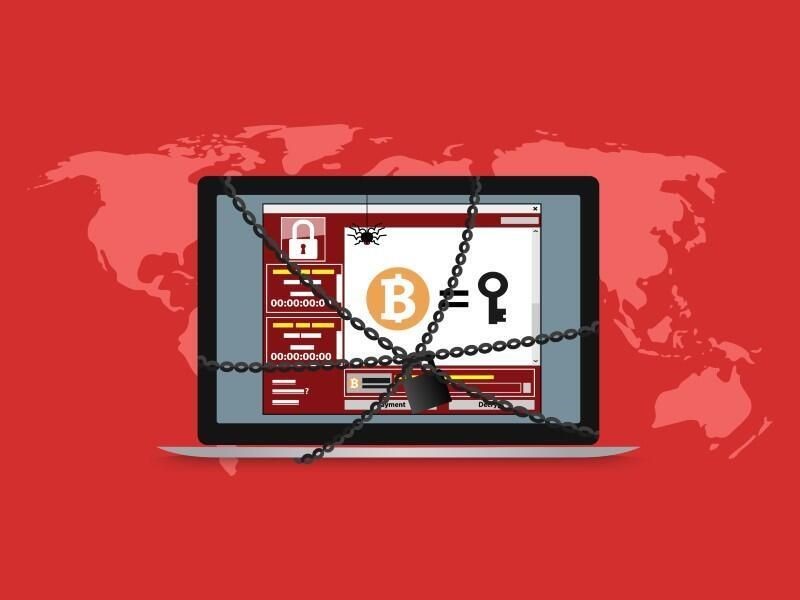Cybercrime is any illegal activity involving a computer, networked device, or network. While most cybercrimes are committed to making a profit for the attackers, certain cybercrimes are committed against computers or devices directly to harm or disable them. Some of the year’s worst cyber-attacks even had real-world consequences, propelling cybercrime into the mainstream and to the top of national security agendas, particularly in the United States and the United Kingdom.
1. The Colonial Pipeline ransomware attack has grave consequences
Though it did not disrupt fuel supplies at UK petrol stations, one of the most significant cyberattacks in recent years occurred in May 2021 at the operator of the largest fuel pipeline in the US. Indeed, it may have triggered joint action against ransomware groups—only time will tell. As reported in the attack’s immediate aftermath, the US government forced to declare an emergency. In addition, the Department of Transportation temporarily relaxed regulations governing how long truckers could remain behind the wheel across most of the Mid-Atlantic, the southern US, and Texas to improve fuel supply chain flexibility.

2. The REvil team demands $70 million for the Kaseya ransomware crime
This cybercrime is an example of a supply chain hack on July 4th. The REvil ransomware squad demanded a $70 million ransom payment from over 1,000 companies whose IT systems were locked after the gang hacked services provider Kaseya. Because of the incident’s magnitude, the REvil group was forced to go into hiding for a period, only to return to find that their infrastructure had been hacked back by law enforcement. One gang member is currently searching for extradition to the United States to face charges, while others are on the run.

3. The BlackMatter gang continues its attacks on many victims
Ransomware gangs come and go for various reasons, but one thing is sure: whether it is a rebranding of an established group or a new participant in the game, someone else is always ready to take their place. BlackMatter is one of the most famous emerging ransom crews, and we reported on a wave of attacks against various targets that drew warnings from the security industry.

4. A major ransomware attack hit the Irish health service
The Conti ransomware gang made news for encrypting the Irish Health Service Executive’s servers in a ruthless and heartless cyberattack. The incident caused severe disruption to patient care throughout Ireland, prompting a large-scale reaction that forced the involvement of the army. Fortunately, no casualties were reported as a result of the incident, though the service was still not entirely recovered six months later.

5. Stolen Pfizer/BioNTech Covid-19 vaccine data leaked
When data linked to the Pfizer/BioNTech Covid-19 vaccine, taken in December 2020 following a cyber-attack against the European Medicines Agency, was posted on the internet in January 2021, cyber thieves attempted to disrupt the roll-out of the Covid-19 vaccine program in Europe. Email screenshots, formal evaluation data, and other documents such as PDFs and PowerPoint slides were included in the data dump.

6. There were police raids worldwide after investigators cracked the An0m cryptophone app in a major hacking operation
After monitoring the communications of organized criminal groups, authorities in 16 nations launched various operations in June. The gangs sent messages using an encrypted communications network without realizing the FBI handled it. This raid was one of several similar raids in 2021 that, while successfully disrupting organized and cybercrime, raised serious questions about law enforcement’s ability to undertake surveillance and the legality of the evidence gathered.

7. FatFace pays a $2 million ransom to Conti computer thieves
Following a successful cyberattack on its servers in January, fashion store FatFace paid a $2 million ransom to the Conti ransomware group in March. The ransomware operators demanded $8 million, or 213 bitcoins at the current exchange rate.

8. Scammers accidentally reveal fake Amazon review data
Over the years, Computer Weekly has frequently highlighted data loss incidents at organizations failing to safeguard their databases adequately. So, it was encouraging to learn in May that cybercriminals are also bad at operational security. This unhappy fraudster unintentionally released over 13 million entries in an open ElasticSearch database, exposing a significant phony review scam that implicated hundreds of third-party Amazon sellers in unethical and illegal behavior.

9. The $50 million ransomware demand on Acer is the highest ever
Records were set to be broken when Roy Castle and Cheryl Baker educated a generation of British youngsters. The $50 million ransom demand made against PC manufacturer Acer was the largest demand ever made in a while. In March, the group published Acer’s data on its leak site, disclosing details of the remarkable double-extortion attack.

10. Ransomware gangs need people with negotiation abilities
Kela researchers discovered that particular gangs are beginning to resemble corporations, with various responsibilities and even outsourced victim discussions. As a result, people skills are in great demand as teams aim to sweet-talk their victims into paying up.

Conclusion
The impact of the COVID-19 outbreak seemed enormous, with cyber criminals showing little guilt as they attempted to damage healthcare companies. Here are the top ten cyber crime stories.


















